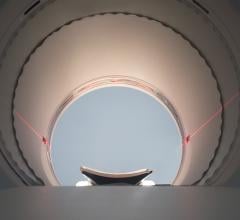
February 18, 2016 — Manhattan Scientifics Inc. announced its wholly-owned subsidiary Senior Scientific LLC, which is developing a platform for the early detection of cancer and other human diseases, has established a research collaboration with Weill Cornell Medicine. For the alliance, the company will bring its magnetic relaxometry technology to Weill Cornell Medicine, where scientists will investigate the use of molecularly targeted nanoparticles to non-invasively detect and diagnose prostate cancers.
“We have extensive experience in targeting radionuclides to cancer for imaging and therapy using antibodies and small molecules,” said John Babich, Ph.D., professor of radiopharmaceutical sciences in radiology at Weill Cornell Medicine. “This collaboration enables us to leverage our expertise in prostate cancer targeting to explore Senior Scientific’s non-radioactive magnetic nanoparticle platform for early detection of cancer.”
Gary Dorfman, M.D., vice chairman for research at the Weill Cornell Medicine Department of Radiology and professor of radiology, added, “The MRX technology may have advantages for patient care compared to PET [positron emission tomography, CT [computed tomography or MRI [magnetic resonance imaging] methods, and we are looking forward to working with Senior Scientific to investigate the diagnostic applications of this technology for patients.”
On Jan. 13, 2016, the company announced it would be working with the University of Michigan Medical School on a breast cancer program, adding to its existing ovarian cancer program with the MD Anderson Cancer Center. With the addition of Weill Cornell Medicine focusing on prostate cancer, the company has engaged with three pre-eminent U.S. cancer institutes to develop commercial applications of its magnetic relaxometry platform. Each of the three institutions will have the MRX technology on-site, enabling them to undertake the pre-clinical animal model studies necessary in anticipation of first-in-human testing.
For more information: www.seniorscientific.com


 April 24, 2024
April 24, 2024 








